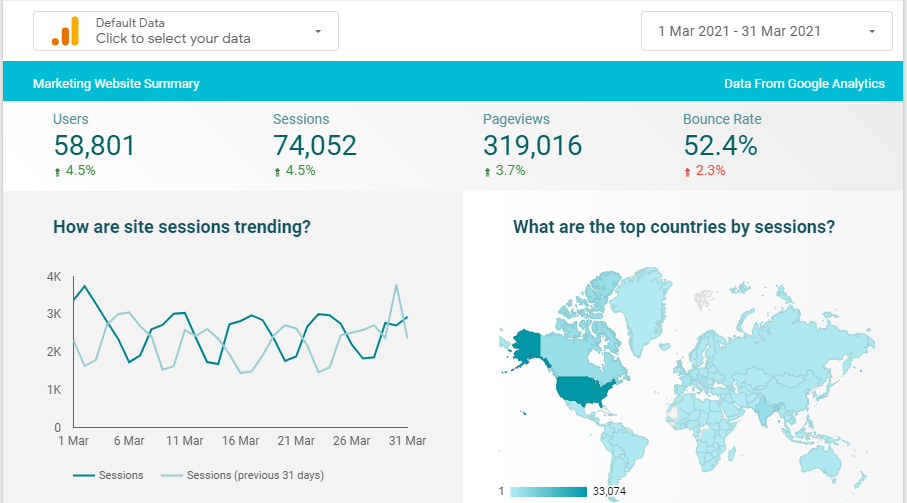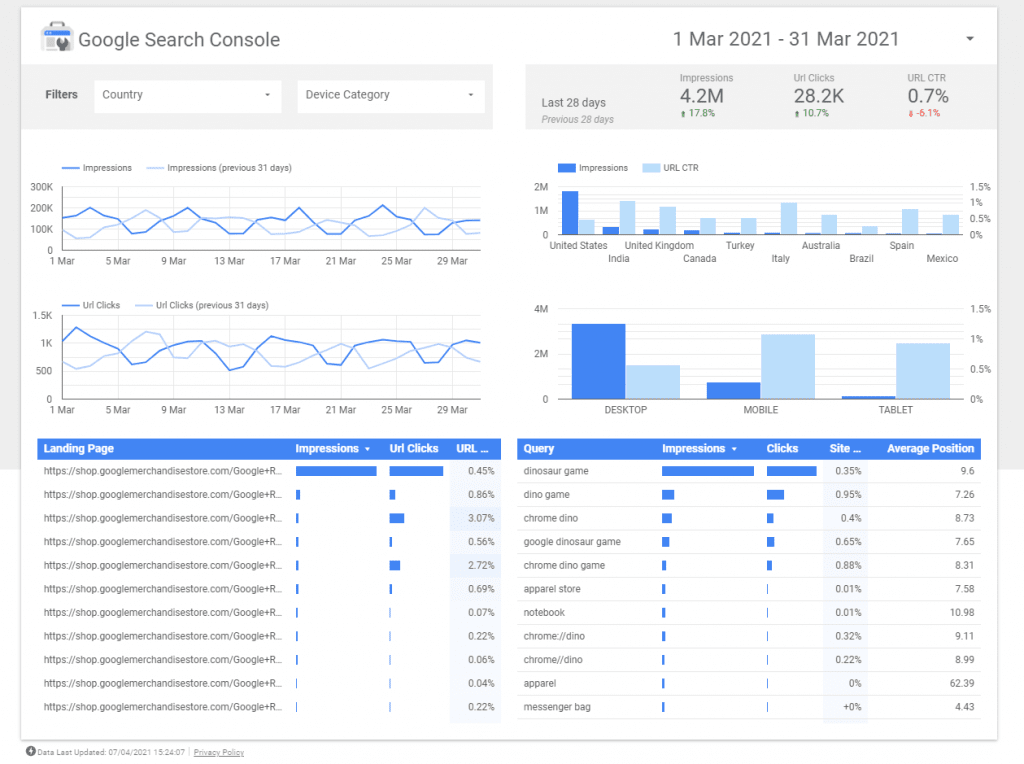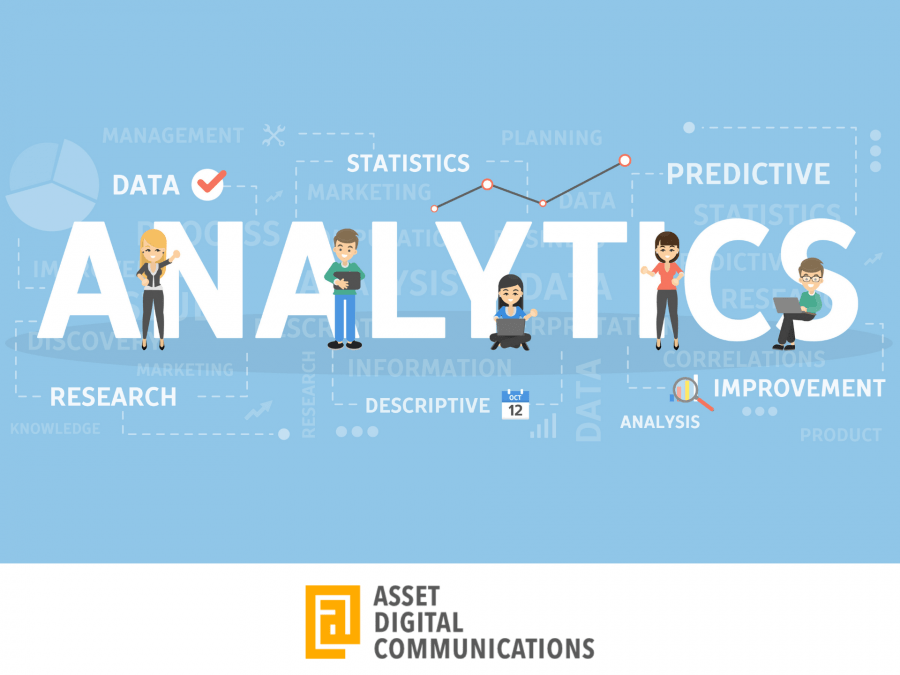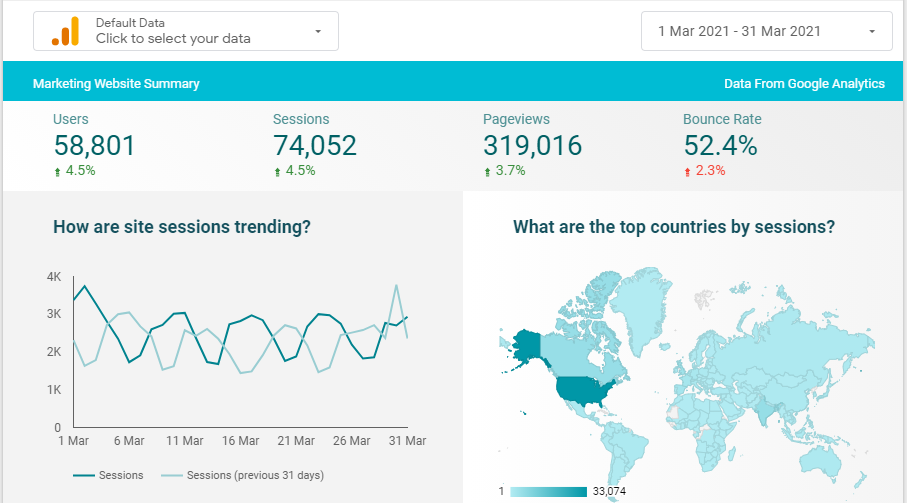Why Digital Marketing Analytics Should Matter to You
The world of business is constantly evolving, making way for better, innovative solutions and new practices. This is why you need to understand why digital marketing analytics matters to you and your business.
For example, let’s look at Netflix. They started as a DVD rental and sales service in 1998. In 1999 they incredibly launched a subscriber-based business model and by 2000 they introduced personalization that has created a whole new viewing category: binge-watching.
When businesses come up with new models, they then adapt these models to better serve markets. At the core of these marketing activities is the consumer. Thinking about Netflix, we know that modern consumers increasingly expect a personalized, convenient experience that is designed specifically for them.
We are past the point where advertising means targeting generalized needs and desires. And yet so many businesses are doing exactly that.
Data is the game changer in this information age. No matter the size of the business, the fact remains that data is increasingly becoming a necessity as it offers profound and important insights into the consumer buying journey.
For small and medium-sized businesses, there are special challenges around data. Without marketing leadership, they miss critical data points that become costly over time.
Data and its place in business
Businesses, in past decades, have been speculative when it came to advertising. There were no direct tracking mechanisms that could easily measure exactly which “eyeballs” had seen or interacted with the ads. Marketers relied on “rule of thumb” assumptions and expensive telephone or email surveys which were not 100% reliable.
The large-scale “Big Data” of the era was not easily or affordably available to small & medium-sized businesses. But in today’s digital world, that is changing. However, setting up the collection strategies is still not that straightforward, nor well understood by SMEs.
Today it is possible to collect massive amounts of data, and we have the computational strength to glean valuable insights from today’s digital big data. Brands analyze the data to better understand customer behavior, measure marketing effectiveness, and develop ground-breaking new strategies to better serve their audiences.
While this is available to both large and small businesses, smaller businesses often are unaware of how to set up the type of systems of data collection and measurement necessary for 21st-century marketing strategy.
Today’s consumers are accustomed to speedy responsiveness, and solutions tailored to suit their needs and demands. The one-size-fits-all marketing approach simply does not work anymore. Yet many small businesses are still using this broad-brush approach.
It’s time to raise the bar, begin to learn about the power in your business’s website and social analytics. And find more business growth.
Digital Marketing Analytics
The consumer-centric approach lies at the foundation of today’s analytics-based strategies. Analytics tools enables companies to quickly turn data into intelligence that aids in attracting and retaining their customers.
Simply put, marketing analytics refers to the tools used to measure, manage, and analyze marketing data collected through the digital channels you are present on. These channels can be your website, social media platforms, or ads on search engines.
There are four kinds of digital analytics that are used to build a comprehensive marketing strategy. These are Competitive Landscape Analytics, Customer Behavior Analytics, Performance Analytics, and Predictive Analytics.
 5 Key Digital Marketing Analytics Metrics Your Business Should Focus On
5 Key Digital Marketing Analytics Metrics Your Business Should Focus On
If you are a starter in the Digital Marketing Analytics world, it may seem overwhelming at first with no clue about where to begin. However, instead of worrying about things to track, you should stay focused on your goal. This means paying attention to your buyer’s journey which will ultimately increase your revenue that can be tied to ROI.
Focus on the following to attain actionable insight into your business efforts:
1. Traffic Quality
While Traffic can also be considered a vanity metric, centering on the quality of traffic can really prove valuable to your marketing strategy. This includes segmenting your traffic at the source as well as considering the demographic data, bounce rate, time spent on-page, new or returning users, and so on.
2. Engagement
Engagement means the likes, shares, and comments that your posts receive on social media from relevant content. If a user is taking the time to connect with your business, he is much more likely to be a customer. Tracking engagement would result in getting more qualified leads.
3. Conversions
Conversions is the action people take which you mark as valuable for your business. This action can be signing up for your blog or giving you a call or even making a purchase on your website. Different businesses relate different values to conversion rate. In the process of tracking conversion, you can identify the steps they take before becoming a customer. Conversions assists in optimizing this customer journey.
4. Click-Through Rate (CTR)
This measurement is available when you do paid ads. The performance of CTR indicates the relevance of your audience. If your CTR is low that means you may need to revise your offer, your landing pages fail to live up to your user’s expectations, or your target audience is not specific enough.
5. Site Load Speed
According to Kissmetrics, 40 percent of people abandon a website that takes more than three seconds to load. That is a lot of traffic to lose in today’s times. Google PageSpeed Insights is a great tool to check your website’s load time. The tool gives insights into key areas that can be improved for optimal speed.
 Google Data Studio is another tool that takes analytics to the next level. A data visualization tool, it pulls data from up to 12 sources and combines them into an easy-to-change, easy-to-distribute, and easy-to-understand report.
Google Data Studio is another tool that takes analytics to the next level. A data visualization tool, it pulls data from up to 12 sources and combines them into an easy-to-change, easy-to-distribute, and easy-to-understand report.
Tag management system allows you to add tags for conversion tracking, re-marketing, site analytics, and so on. Thus, allowing you to track activity across your site and app.
Benefits of digital marketing analytics for business
- Better understanding of your customer
- Retaining customers
- Able to relate to customers
- Increase the customer lifetime value
- Opportunity to deliver the right message at the right time.
The Importance of Marketing Analytics
The internet is here to stay, and it is a crowded, competitive place. To win as an SME, a strong understanding of analytics, deployed as an omni-channel approach, will arm your business with data insights on par with larger businesses.
Each of the digital marketing KPIs and platforms – your website, social media platforms, CRM tool and other customer-facing portals – make data driven analytics available. The omni-channel approach, when set up properly, enables the business owner to see valuable trends, preferences, and behaviours that your competitors may miss month over month.
By setting more ambitious goals, moving out of the “siloed” thinking of seeing social media, email marketing, SEO, PPC as separate initiatives, but rather creating a “big picture” vision for your business, from there an “omni-channel” strategy is set up with the right focus in view.
A cross-channel measurement strategy enables the business to:
- Grow revenue per visitor
- Grow traffic by channel
- Increase leads and conversions
- Reduce cost per conversion
- Measure true marketing ROI
- Grow Brand Awareness
The business is then aligned to expand market share, establish a healthy pattern of growth, plan more effectively and embrace a culture of learning ensuring the growth and profitability of the business into the future. Get in touch with us for digital marketing services.
Suggested Reads For You:




